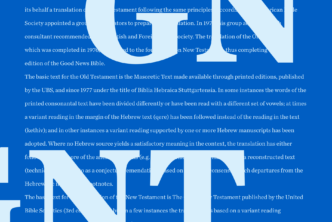Maybe you feel pretty good about what you’ve learned so far and can use lexicons like BDAG and TDNT, but reference grammars (like BDF and Wallace) are still unfamiliar territory.
Maybe you’re fine with “genitive” and “dative” and even “finite verb”, but when folks start talking about instrumental datives or transitive verbs, your eyes glaze over and your thoughts go elsewhere.
Good news: Stanley Porter’s Idioms of the Greek New Testament is geared toward you. It is an excellent and readable “intermediate handbook” that can help bridge the gap. Porter explains in his introduction:
My purpose for this book is modest. This book is designed for students who have completed approximately one year of Greek, and who would like an intermediate handbook to help them make a transition to using advanced grammars such as BDF, Robertson, Moulton and Turner.
Porter, S. E. (1999). Idioms of the Greek New Testament (14). Sheffield: JSOT.
The table of contents gives the range of items found in this 340 page book. It also includes a short glossary along with reference and subject index.
- Part I: WORDS AND PHRASES
- Chapter 1: TENSE AND ASPECT, AND PERIPHRASTIC CONSTRUCTIONS
- Chapter 2: MOOD AND ATTITUDE
- Chapter 3: VOICE, NUMBER AND PERSON
- Chapter 4: CASES AND GENDER
- Chapter 5: THE ARTICLE
- Chapter 6: ADJECTIVES
- Chapter 7: ADVERBS
- Chapter 8: PRONOUNS
- Chapter 9: PREPOSITIONS
- Chapter 10: PARTICIPLES
- Chapter 11: INFINITIVES
- Chapter 12: PARTICLES AND CONJUNCTIONS
- Part II: CLAUSES AND LARGER UNITS
- Chapter 13: COMMANDS AND PROHIBITIONS
- Chapter 14: DEPENDENT CLAUSES
- Chapter 15: RELATIVE CLAUSES
- Chapter 16: CONDITIONAL CLAUSES
- Chapter 17: INDIRECT DISCOURSE
- Chapter 18: QUESTIONS
- Chapter 19: NEGATION
- Chapter 20: WORD ORDER AND CLAUSE STRUCTURE
- Chapter 21: DISCOURSE ANALYSIS
Porter’s Idioms is an accessible, readable book that gives good information about the grammar and syntax of the Greek of the New Testament. If you don’t have Portfolio (KF), then you probably don’t have this book. If you’re interested in this sort of stuff, then perhaps you should consider it.
Are you a fan of Stanley Porter’s Idioms of the Greek New Testament? Leave us a comment and tell us why.





